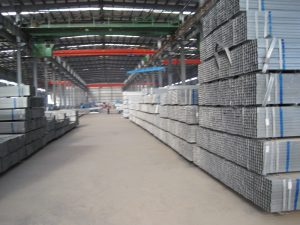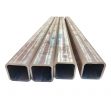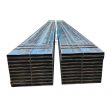Appropriate coating for steel pipes
Determining the appropriate coating for steel pipes involves considering several factors, including the intended application, the environment in which the pipes will be used, and the type of steel used to manufacture the pipes. Coatings can be applied to mild steel tube to protect them from corrosion, improve their durability, and enhance their performance in specific environments. Here are some factors to consider when selecting a coating for your steel pipes:

Intended application: The intended application of the steel pipes is the most important factor to consider when selecting a coating. Different coatings are designed to protect against specific types of corrosion or to provide specific types of performance enhancements. For example, if the pipes will be used in an offshore oil drilling application, a coating that provides protection against saltwater corrosion would be appropriate.
Environment: The environment in which the pipes will be used is another important factor to consider. Coatings must be able to withstand the specific environmental conditions in which the rectangular hollow section will be exposed. For example, if the pipes will be exposed to extreme temperatures or high humidity, a coating that provides protection against corrosion and moisture would be appropriate.
Type of steel: The type of steel used to manufacture the pipes is also an important factor to consider when selecting a coating. Different types of steel have different corrosion resistance properties, and coatings must be selected to complement the properties of the steel. For example, if the steel used to manufacture the carbon steel pipe is prone to corrosion, a coating that provides superior corrosion resistance would be necessary.
Performance requirements: The performance requirements of the pipes should also be considered when selecting a coating. For example, if the pipes will be used for the transportation of corrosive substances, a coating that provides chemical resistance would be appropriate. If the pipes will be exposed to abrasive materials, a coating that provides abrasion resistance would be necessary.
Cost: Finally, the cost of the coating should be considered. Different types of coatings have different costs, and it is important to balance the desired performance enhancements with the available budget.
Some common types of coatings for steel pipes include epoxy coatings, polyurethane coatings, and zinc-based coatings. Epoxy coatings provide excellent corrosion protection and are often used in applications where the thinner wall steel pipe is exposed to corrosive substances. Polyurethane coatings provide excellent abrasion resistance and are often used in applications where the pipes are exposed to abrasive materials. Zinc-based coatings, such as galvanized coatings, provide excellent corrosion resistance and are often used in outdoor applications.
Tel: +86 18202256900 Email: steel@tjdpbd.com








